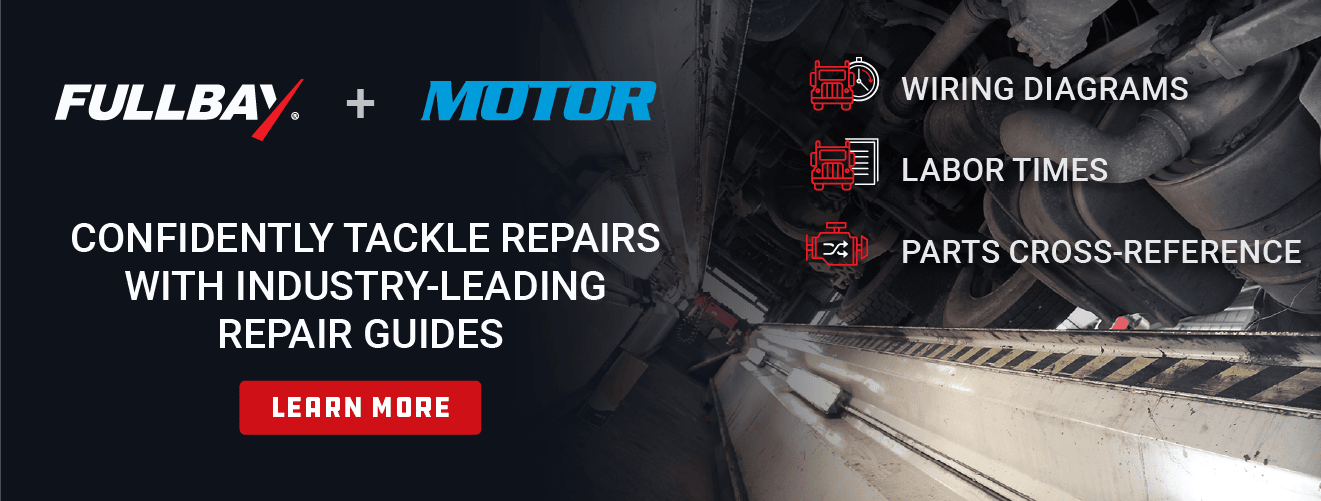DC Recap: Systemizing Your Hiring

Hiring and retention are still huge concerns in the diesel repair world—the traffic we get on articles, ebooks, and webinars about the topic bears that out. Several of the presenters at this year’s Diesel Connect touched on the subject, even if they weren’t discussing it exclusively—that’s how important it is.
One of the most interesting approaches came from Jessica Wendt of HM Repairs and Services. Her presentation, “Process & Progress: How Systems Can Help You Grow & Hire,” looked into building systems that can streamline shop workflows and make life a little easier for everyone. But a good portion of her discussion centered on systemizing hiring—we found it fascinating, and so did the audience, judging by how many questions they had.
We’re not putting the recording up for the general public just yet, but read on to learn more about how Jessica and the HM team built their hiring system!

MINDSET IS EVERYTHING
Before anything else, consider how you look at the world.
Jessica and her team live by a Dave Ramsey quote: “If you’re not growing, you’re dying.”
“You have to constantly be changing with the times,” Jessica told the audience. “You constantly have to be looking at the market trends and where you’re going and being willing to pivot to be able to continue to grow and succeed.”
Everything you do in your shop should contribute to growth, from hiring a tech to buying a new set of bins for the parts room. Systems, when properly built and adapted, make just about everything easier to do, thus making it easier to grow.
(Keep in mind we didn’t say easy. Just easier.)
A big portion of going after more business and growing is “getting the right people on the right seat of the bus.”
And that, friends, means hiring.
WHY TO SYSTEMIZE YOUR HIRING PROCESS
Okay, before anything else, let’s all acknowledge that everyone has probably made a mistake or two while hiring. It’s easy to slip up, especially when you need someone right now (as repair shops often do) and a person happens to interview really well.
Hiring mistakes include:
- Hiring someone based off one (admittedly great) conversation.
- Focusing on selling your shop instead of finding out if an applicant is the right fit.
- Making the decision alone or with one other person instead of deliberating on it (admittedly, if you’re a one-man band hiring another person…you’ll be talking to yourself. That’s OK.).
Systemizing the hiring process, Jessica said, gives you some cushion. “It allows you the time to go back to your leadership team and be able to discuss things because it may be that someone saw something that you didn’t and you wanna share and collaborate on that.”
Yes, hiring is tough…but sacking someone who wasn’t a good fit and then hiring someone else to replace them is even harder. And way more expensive (often to the tune of thousands of dollars). And just a pain in everyone’s backside.
A BRIEF GUIDE TO HM’S SYSTEMIZED HIRING
A system is described by the dictionary as “an organized framework or method.” When it comes to hiring, Jessica and the HM team follow several identical steps for every applicant. No one is hired on the spot, no matter how much they like the person. Following these steps has saved them a lot of heartache.
Here they are:
- Phone interview. They have a set group of questions they ask the applicant (allowing some time for pleasantries and any tangents that may occur). They want to get a feel for the person’s personality and skill level.
They also maintain lists of interview questions for each role they hire for. The questions are continuously revisited and revamped as necessary, and existing questions are adjusted as new roles become available.
- DISC assessment. If the individual does well with the phone interview, they take a link to a DISC assessment, which we’ll discuss more in a section below. It takes about 20 minutes and it’s largely a communication assessment.
- In-person interview. This is where the individual comes into the shop and meets several members of the team—not just their potential direct bosses. This often includes the receptionist. “She starts to spark conversation right away and kinda gives us her take on how it went and how communicable and stuff they were,” Jessica said.
From there, the applicant interviews with whoever will be their direct supervisor (for a tech, it’s usually the shop manager, along with the manager’s boss—the owner of the shop). The applicant receives a written description of the job’s benefits after the interview.
- Second interview. This step is optional; this is where either party can ask any follow-up questions of each other. There is also another optional step for potential support staff or office managers, who take an additional test.
- In-person offer. “We found that bringing people back when we’re making them an offer is going to be more, hold more weight and also allows you to see their reaction to things,” Jessica explained.
If they’re hiring for a more key leadership role, Jessica said, there’s an additional step where they take the applicant and their spouse (if they have one) to supper. “When an individual comes to work for you, you’re not only hiring that person, you’re also hiring, in a way, their spouse,” she said. “You want to make sure that it’s gonna be a good fit for the company.”
At the end of the presentation, an audience member asked if HM performed mechanical aptitude tests for techs in the interview process. Jessica said they did not, but the people who would be interviewing the techs—the shop manager and her husband Jamie—are mechanics and can “tease out” that information.
“And really,” she added, “when you’re hiring you wanna hire for attitude and the ability for them to be gung ho to learn new things too depending on the position you’re hiring for. If you’re hiring for an experienced person, obviously you want them to have experience. But if you’re hiring for someone that you can train up, that attitude is gonna be really important.”
SO UH…WHAT’S A DISC ASSESSMENT?
DISC assessments are apparently important, since we mentioned them a bazillion times in the last section. But, uh, what are they?
Alas, the DISC assessment does not involve you challenging an applicant to an awesome game of Frisbee or disc golf…and it probably doesn’t involve disc brakes, either. It’s often described as a personality profile tool, though Jessica emphasizes that she views it as more of a communication tool (more on that below). When you take a DISC assessment, you’re assigned numerical values for four personality traits:
These are the traits:
- Decisive: The take-charge, get ‘er done personality. They love checking things off lists. Some DISC tests say the D is for “dominant.”
- Interactive: That coworker who loves people? Yeah, they’re the Interactive one in the group. They can chat all day, every day, about anything under the sun. Jessica noted that they’re often salesmen.
- Stabilizing: These folks tend to stray away from change and/or difficult conversations. They don’t want to hurt anyone’s feelings.
- Cautious: Jessica also described cautious people as detail-oriented.
Each completed DISC assessment also comes with some words to describe a person. An “Interactive” person, for example, might be “Magnetic” or “Enthusiastic.”
Now, as we mentioned above, the DISC is not so much a personality test as it is a communication tool. You may have heard the old adage that everyone benefits from a different management style…everyone benefits from a different communication style, too.
Below, Jessica describes putting a DISC assessment into action with her accounts receivable person:
[Carly clip]
Jessica credits Dave Ramsey with suggesting that each employee receive a laminated card with their DISC results on them. The card is taped to their workstation—yes, even the technicians. Someone goes over to Carly’s desk and sees, aha, she likes conversations—and they engage her that way before jumping to the point.
Does this take more time?
Yes.
Does it get frustrating?
Sometimes.
Jessica describes herself as a DC; she very much wants to get to the point. But it’s the combination of people that makes a team great; they can help each other grow and shore up in areas where they may have weaknesses.
“If you know your people and how they like to be communicated with,” she concluded, “your culture will grow and your morale within your team.”
Someone in the crowd agreed: “We get more positive than negative [responses to taking the DISC test],” the person said. “Most people, when you explain to them what it is, they almost light up, thinking ‘This person actually cares about us.’ So I would say we have great success with it.”
YOUR SYSTEMS CAN GROW WITH YOU
Think of systems as living documents.
(Or maybe don’t. Who came up with that phrase, anyway? A living document would be pretty creepy. It probably wouldn’t want you touching it, much less changing it. Uh, where were we?)
Okay. Think of systems as tools.
You will probably not use the same tool for the entire duration of your career. Systems, like other tools, are made to be changed out as necessary. The questions you ask during a phone interview may shift. New technologies will require techs to have new skills (or be willing to learn them). And so on and so forth. The system you implement for hiring today may not look the same in a year or seven years.
The point is you’ve got a system. You have a procedure laid out that you can follow, ensuring you have the best chance of making a good hire that does excellent work and fits in great with the rest of your crew.
